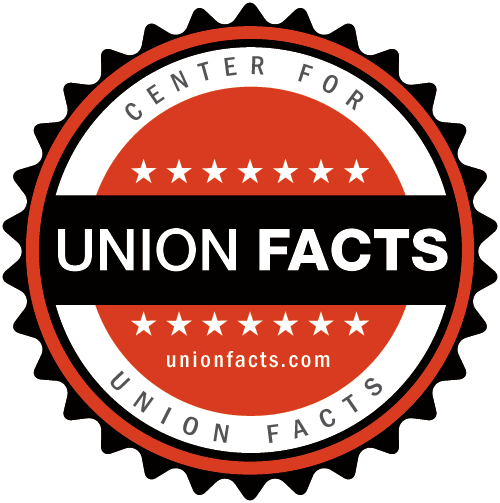Qualified Opinions: Compliance Audits
Despite the LMRDA’s ineffective enforcement provisions, the Act does grant the Office of Labor-Management Standards (OLMS) broad powers to audit unions’ financial reports and ensure compliance with reporting requirements. However, unlike Internal Revenue Service (IRS) audits, which can result in significant fines, most OLMS Compliance Audits (CAP) results in little more than a stern letter.
To better understand the role compliance audits have in reforming non-compliant unions’ finances, the Center for Union Facts obtained 1,400 audit closing letters from 2003 to the present from the Department of Labor through a Freedom of Information Act request. CUF read, analyzed, and coded the letters for the (a) union audited and the (b) number of violations noted during the audit.
Auditing Terminology
- Unqualified Opinion — Auditors give unqualified opinions when they believe the financial statements are accurate and comply with Generally Accepted Accounting Principles (GAAP). This is seen as a “clean bill of health.” Qualified Opinion — Auditors offer qualified opinions when they were incapable of completely examining an organization’s records or they determine that an organization does not meet GAAP.
- Adverse Opinion — Auditors report an adverse opinion when they believe the financial documents contain material misstatements.
While the OLMS does not rely on specific accounting terminology to categorize its audits, the Center for Union Facts followed GAAP in evaluating each closing letter.
Since 2003, less than 10 percent of unions audited by the OLMS received unqualified opinions— or more simply, “clean bills of health.” By contrast, a 2003 Harvard study found that 95 percent of non-profits organizations received unqualified opinions from their internal auditors.
Put another way, more than 90 percent of unions did not meet the basic requirements for maintaining Generally Accepted Accounting Practices and accurate financial statements in compliance with the LMRDA. (see Table 5)
International union headquarters, which often employ entire accounting departments, are equally irresponsible in meeting the basic standards set by the LMRDA. In fact, of the 16 international unions audited since 2001, none have received unqualified opinions.
The Center for Union Facts’ analysis plainly illustrates that union financial mismanagement is pervasive across the movement. And while receiving a qualified compliance audit is not necessarily a cause for concern, it does indicate that union leaders are not taking the necessary precautions to prevent corruption.
Read Next: Examples of Compliance Audit Closing Letter Notices

